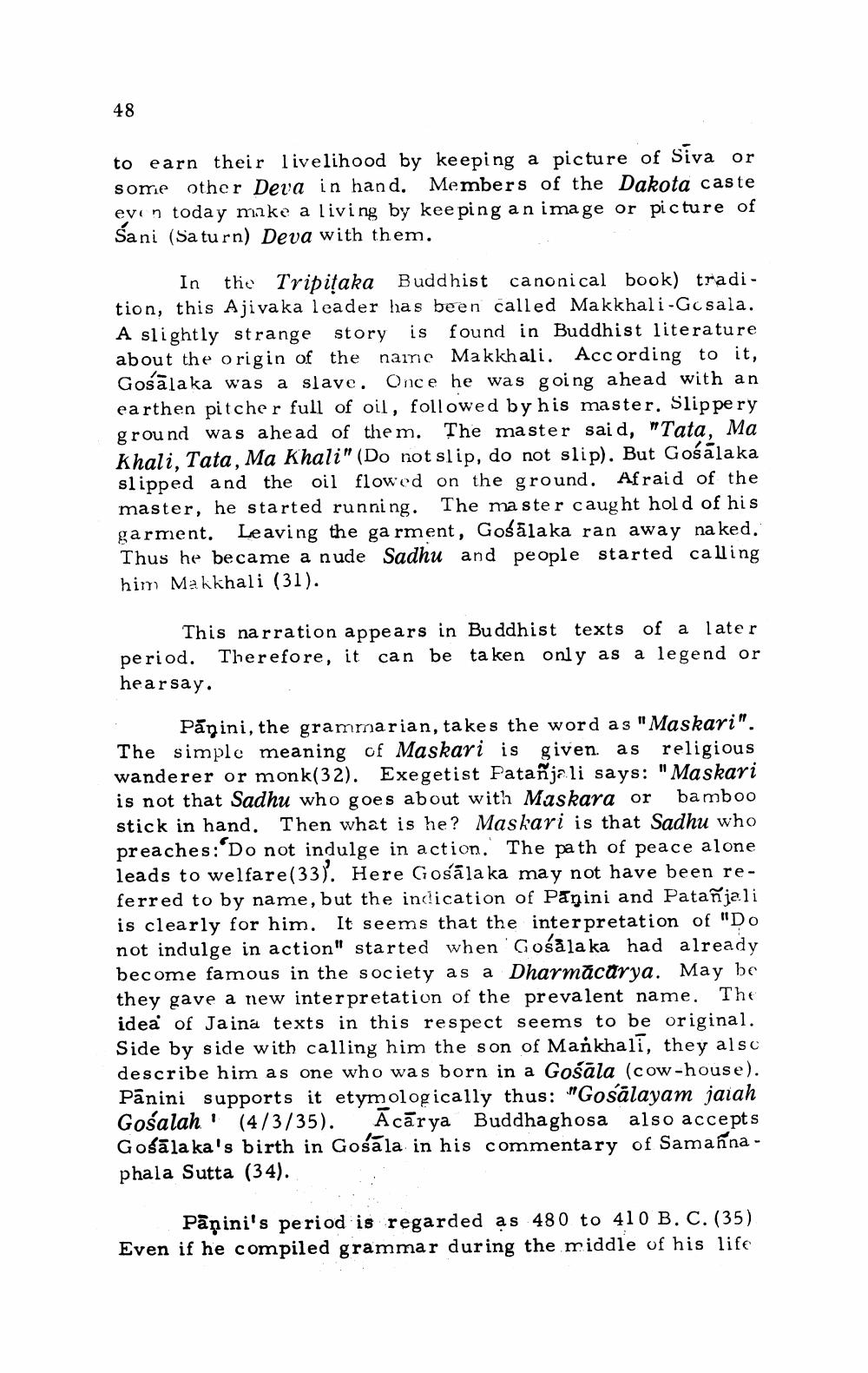________________
48
to earn their livelihood by keeping a picture of Siva or some other Deva in hand. Members of the Dakota caste even today make a living by keeping an image or picture of Sani (Saturn) Deva with them.
In the Tripitaka Buddhist canonical book) tradition, this Ajivaka leader has been called Makkhali-Gosala. A slightly strange story is found in Buddhist literature about the origin of the name Makkhali. According to it, Gosalaka was a slave. Once he was going ahead with an earthen pitcher full of oil, followed by his master. Slippery ground was ahead of them. The master said, "Tata, Ma Khali, Tata, Ma Khali" (Do not slip, do not slip). But Gośālaka slipped and the oil flowed on the ground. Afraid of the master, he started running. The master caught hold of his garment. Leaving the garment, Gośãlaka ran away naked. Thus he became a nude Sadhu and people started calling him Makkhali (31).
of a later
This narration appears in Buddhist texts period. Therefore, it can be taken only as a legend or hearsay.
Panini, the grammarian, takes the word as "Maskari". The simple meaning of Maskari is given as religious wanderer or monk(32). Exegetist Patanjali says: "Maskari is not that Sadhu who goes about with Maskara or bamboo stick in hand. Then what is he? Maskari is that Sadhu who preaches: Do not indulge in action. The path of peace alone leads to welfare (33). Here Gosala ka may not have been referred to by name, but the indication of Panini and Patanjali is clearly for him. It seems that the interpretation of "Do not indulge in action" started when Gośala ka had already become famous in the society as a Dharmācārya. May be The they gave a new interpretation of the prevalent name. idea of Jaina texts in this respect seems to be original. Side by side with calling him the son of Mankhali, they also describe him as one who was born in a Gosala (cow-house). Panini supports it etymologically thus: "Gosalayam jaiah Gośalah (4/3/35). Acarya Buddhaghosa also accepts Gosalaka's birth in Gosala in his commentary of Samanna - phala Sutta (34).
Panini's period is regarded as 480 to 410 B. C. (35) Even if he compiled grammar during the middle of his life




